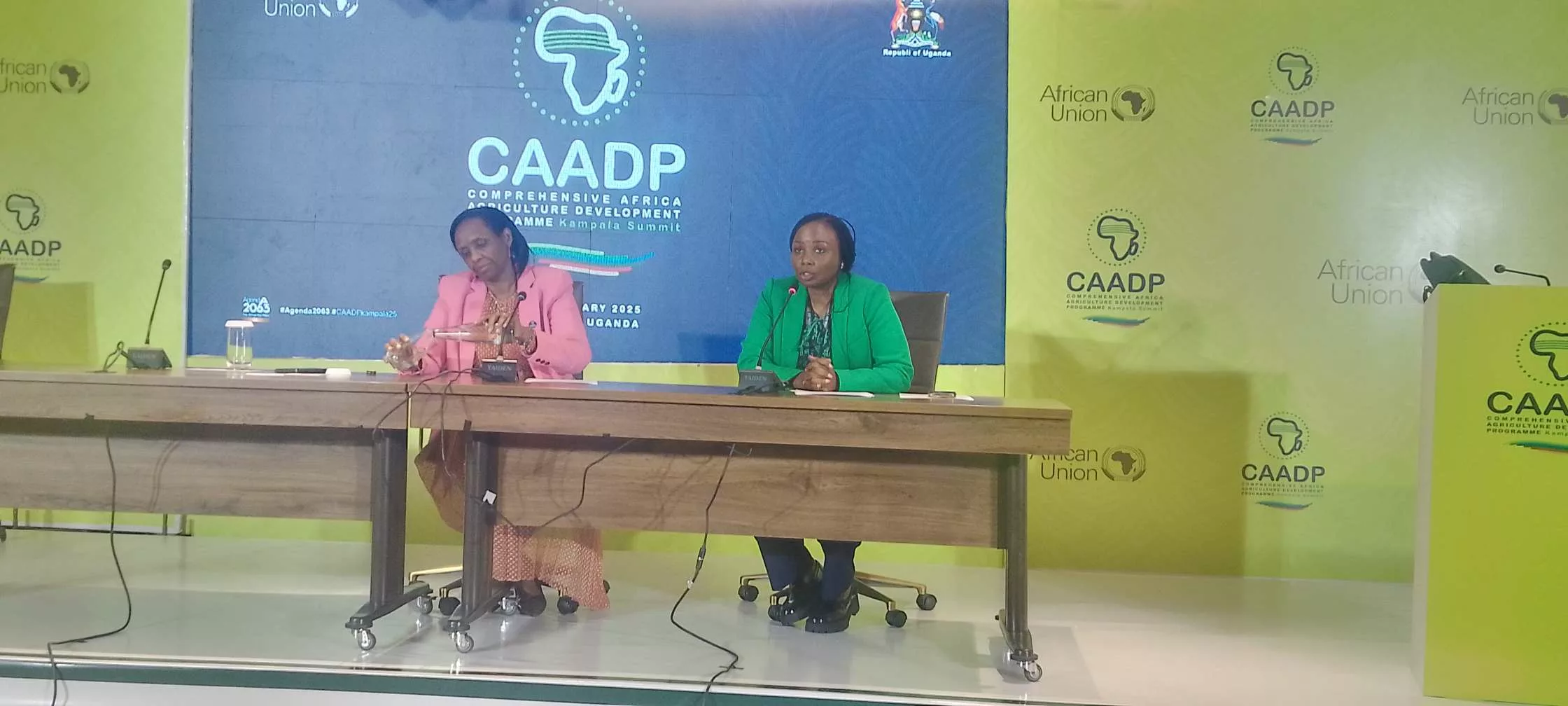|
Getting your Trinity Audio player ready...
|
The Alliance for a Green Revolution in Africa (AGRA) said despite some progress in addressing food insecurity, Africa still faces several challenges and obstacles to the successful implementation of the Comprehensive Africa Agriculture Development Programme (CAADP) including climate change and inadequate funding of the agricultural sector.
This came to the fore during an interactive session presided over by Dr. Agnes Kalibata, the President of AGRA with the media on the sidelines of the African Union Extraordinary Summit on CAADP running from the 9th to the 11th of January 2025 at the Speke Munyonyo Resort in Kampala, Uganda.
Dr. Kalibata hailed the stance and decision by African heads of state to invest in the agricultural sector which is very critical to the development of the continent’s economies.
“Allocating 10 percent of the budget to agriculture translates into six to seven percent in terms of GDP. And that’s huge. We have witnessed that countries that have done it have seen huge progress. Any country that has invested ten percent into agriculture has seen huge progress. So, the biggest shortfall has been that very few countries, only a handful of countries have been able to invest ten percent of their budget in agriculture.
“And there are many challenges as to why we thought this would be the case. I guess the biggest challenge is that we need to have strong economies, and it’s a chicken and egg thing, to be able to invest in the agriculture sector in ways that can transform it. It means that you’re getting the money from somewhere else, right? And when you have 101 priorities, it becomes extremely difficult to consistently put that money in one sector. But the missed opportunity is, it’s the sector that employs the most. So that chicken and egg come back to haunt us when we don’t do it,” Dr Kalibata said.
She added that one of the biggest challenges that has been in place is climate change. Most countries started treating climate change as a problem at a global level in 2015.
“When it emerged as a problem, countries started putting more resources into dealing with climate change. Our economies and our countries are putting nine percent of their GDP into dealing with the challenge of climate change in agriculture, infrastructure, and all these other things far more than we are putting into agriculture.
“So these challenges, climate change, COVID-19, those that impact how we access financing, for example, the Ukraine crisis, really impacted how African farmers access fertilizers. Now because of this, the trade ecosystem has been lost. The development was disrupted. That impacts how we invest in things. This impacts how Africa accesses resources and what Africa,” Dr. Kalibata said.
She encouraged stakeholders to incorporate the whole food system agenda.
“Recognizing how we use the environment is very critical to the sustainability of the agricultural system itself. As our governments take up this CAADP agenda, these are things that I feel will give us a bit of opportunity to implement it,” she added.






